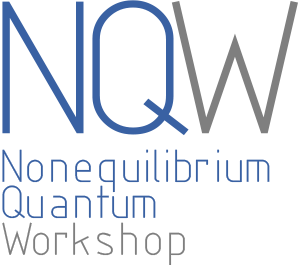
- This event has passed.
Signatures of transient Hubbard exciton formation and recombination in Sr2IrO4
December 15, 2021 @ 17:45 - 18:10 CET
Z. Lenarčič1, O. Mehio2,3, X. Li2,3, H. Honglie2,3, M. Buchold4, and D. Hsieh2,3
1Jozef Stefan Institute, Jamova 39, SI-1000 Ljubljana, Slovenia
2Institute for Quantum Information and Matter, California Institute of Technology,
Pasadena, CA 91125, USA
3Department of Physics, California Institute of Technology, Pasadena, CA 91125, USA
4Institute for theoretical physics, University of Cologne, Zuelpicher Str. 77, 50937 Köln, Germany
To date, excitons have mainly been studied in rigid band semiconductors. Due to the irrelevance of electron-electron correlations in these systems, the same hydrogenic excitonic models apply to many material classes. In Mott insulators, however, strong interactions between electronic, spin, and orbital degrees of freedom create pathways for other excitonic binding mechanisms. These so-called Hubbard excitons are predicted to exhibit novel non-hydrogenic properties that rely critically on the microscopic description of the host material. I will report the spectroscopic signatures of transient exciton formation in the antiferromagnetic spin-orbital Mott insulator Sr2IrO4 obtained by employing an ultrafast terahertz probe that is sensitive to transitions between different excitonic states. A near-infrared photoexcitation is used to generate a conductive particle-hole gas, which decays into insulating excitonic states. Strong spin-exciton coupling is deduced from an analysis of the excitonic recombination dynamics as a function of temperature. To develop a microscopic picture of the excitonic states, I will compare the experimental results against numerical exact diagonalization calculations. These results stimulate the search for novel excitonic states in other Mott insulating systems.


